The Elfin Knight
Child Ballad #2
(Also known as “Scarborough Fair)
Are you going to Scarborough fair?
Parsley, sage, rosemary and thyme
Remember me to one that lives there
For once she was a true love of mine
Tell her to make me a cambric shirt
Parsley, sage, rosemary and thyme
Without any seam or fine needlework
And then she’ll be a true love of mine
Tell her to wash it in yonder dry well
Parsley, sage, rosemary and thyme
When water ne’er sprung nor drop of rain fell
And then she’ll be a true love of mine
Tell her to dry it on yonder thorn
Parsley, sage, rosemary and thyme
Which never bore blossom since Adam was born
And then she’ll be a true love of mine
O will you find me an acre of land
Parsley, sage, rosemary and thyme
Between the sea foam and the salt sea sand
Or never be a true love of mine
O will you plough it with a ram’s horn
Parsley, sage, rosemary and thyme
And sow it all over with one peppercorn?
And then she’ll be a true love of mine
O will you reap it with a sickle of leather
Parsley, sage, rosemary and thyme
And tie it all up with a peacock’s feather?
And then she’ll be a true love of mine
And when you are done and finished your work
Parsley, sage, rosemary and thyme
Then come to me for your cambric shirt
And you shall be a true love of mine

 I am indebted to the many friends who share my love of traditional songs and to the many scholars whose works are too many to include here. I am also incredibly grateful to the collector’s curators and collators of Wikipedia, Mudcat.org, MainlyNorfolk.info, and TheContemplator.com for their wise, thorough and informative contributions to the study of folk music. I share their research on my site with humility, thanks, and gratitude. Please cite their work accordingly with your own research. If you have any research or sites you would like to share on this site, please post in the comment box. Thanks!
I am indebted to the many friends who share my love of traditional songs and to the many scholars whose works are too many to include here. I am also incredibly grateful to the collector’s curators and collators of Wikipedia, Mudcat.org, MainlyNorfolk.info, and TheContemplator.com for their wise, thorough and informative contributions to the study of folk music. I share their research on my site with humility, thanks, and gratitude. Please cite their work accordingly with your own research. If you have any research or sites you would like to share on this site, please post in the comment box. Thanks! Contents
"Scarborough Fair" (Roud 12, Child 2) is a traditional English ballad.[1] The song lists a number of impossible tasks given to a former lover who lives in Scarborough, North Yorkshire. The "Scarborough/Whittingham Fair" variant was most common in Yorkshire and Northumbria, where it was sung to various melodies, often using Dorian mode, with refrains resembling "parsley, sage, rosemary and thyme" and "Then she'll be a true love of mine."[2] It appears in Traditional Tunes (1891) by Frank Kidson, who claims to have collected it from Whitby.[3]
The famous melody was collected from Mark Anderson (1874–1953), a retired lead miner from Middleton-in-Teesdale, County Durham, England, by Ewan MacColl in 1947. This version was recorded by a number of musicians in the 20th century, including the iconic 1968 arrangement in counterpoint by the American folk rock duo Simon & Garfunkel, who learned the ballad from Martin Carthy. A slightly different rendition of the ballad (referred to as "The Cambric Shirt", or "Parsley, Sage, Rosemary and Thyme") had been recorded by John Lomax in 1939 in the United States.
History
The lyrics of "Scarborough Fair" appear to have something in common with a Scottish ballad titled "The Elfin Knight",[4] collected by Francis James Child as Child Ballad #2,[5] which has been traced as far back as 1670. In this ballad, an elf threatens to abduct a young woman to be his lover unless she can perform an impossible task ("For thou must shape a sark to me / Without any cut or heme, quoth he"); she responds with a list of tasks that he must first perform ("I have an aiker of good ley-land / Which lyeth low by yon sea-strand").
Dozens of versions existed by the end of the 18th century. A number of older versions refer to locations other than Scarborough Fair, including Wittingham Fair, Cape Ann, "twixt Berwik and Lyne", etc. Many versions do not mention a place name and are often generically titled ("The Lovers' Tasks", "My Father Gave Me an Acre of Land", etc.).[citation needed]
The references to the traditional English gathering "Scarborough Fair", and the refrain "parsley, sage, rosemary, and thyme", date to 19th-century versions, and may have been borrowed from the ballad Riddles Wisely Expounded (Child Ballad #1), which has a similar plot.[citation needed]
Lyrics
The lyrics, as published by Frank Kidson in 1891,[4] begin:
"O, where are you going?" "To Scarborough fair,"
Savoury, sage, rosemary, and thyme;
"Remember me to a lass who lives there,
For once she was a true love of mine.
"And tell her to make me a cambric shirt,
Savoury, sage, rosemary, and thyme,
Without any seam or needlework,
And then she shall be a true love of mine.
"And tell her to wash it in yonder dry well,
Savoury, sage, rosemary, and thyme,
Where no water sprung, nor a drop of rain fell,
And then she shall be a true love of mine."[6]— Stanzas 1–3
Alternative refrains
The oldest versions of "The Elfin Knight" (circa 1650) contain the refrain "my plaid away, my plaid away, the wind shall not blow my plaid away." Slightly more recent versions often contain one of a group of related refrains:
- "Sober and grave grows merry in time"
- "Every rose grows merry with time"
- "There's never a rose grows fairer with time"
- "Whilst every grove rings with a merry antine"[note 1][7]
These are usually paired with "Once (s)he was a true love of mine" or some variant. "Parsley, sage, rosemary and thyme" may simply be an alternate rhyming refrain to the original based on a corruption of "grows merry in time" into "rosemary and thyme."[citation needed]
Recordings
Field recordings
Early audio field recordings of the ballad include the following examples:
- Georgia Ann Griffin of Newberry, Alachua, Florida. Recorded by John Lomax in 1939.[8]
- Allie Long Parker of Hogscald Hollow, Eureka Springs, Arkansas. Recorded by Mary Parler on 7 April 1958.[9]
- Sara Cleveland of Brant Lake, New York. Recorded by Sandy Paton in 1966.[10]
- Elizabeth "Liz" Jefferies. Recorded in Bristol by Barry and Chris Morgan in 1976.[11]
Commercial recordings
1950s
The earliest commercial recording of the ballad was made by actors and singers Gordon Heath and Lee Payant, Americans who ran a café and nightclub, L'Abbaye, on the Rive Gauche in Paris. The recording appeared on the 1955 Elektra album Encores from the Abbaye.[12] The song was also included on the 1956 album The English and Scottish Popular Ballads vol IV by A. L. Lloyd and Ewan MacColl, using Kidson's melody.[13]
The first recorded version using the best-known melody was performed by Audrey Coppard on the 1956 album English Folk Songs.[14] A decade after collecting the song, MacColl released his own version, accompanied by Peggy Seeger on guitar, on the 1957 LP Matching Songs of the British Isles and America[15] and an a capella rendition another decade later on The Long Harvest (1967).[16]
1960s
The version using the melody later used by Simon & Garfunkel in "Scarborough Fair/Canticle" was sung to Ewan MacColl in 1947 by Mark Anderson (1874–1953), a retired lead miner from Middleton-in-Teesdale, County Durham, England.[17][18][19] No audio recording of Anderson's version was ever made, although Alan Lomax recorded Anderson singing other songs in 1951.[20] MacColl printed the lyrics and melody in a book of Teesdale folk songs, and later included it on his and Peggy Seeger's The Singing Island in 1960.[18]
In 1965, Martin Carthy sang "Scarborough Fair" on his eponymous debut album after having picked up the tune from the songbook by MacColl and Seeger.[21]
Marianne Faithfull recorded the song for her second American studio album Go Away From My World, released in December 1965.[22]
"Scarborough Fair/Canticle" appeared as the lead track on the 1966 Simon & Garfunkel album Parsley, Sage, Rosemary and Thyme in counterpoint with "Canticle", a reworking of the lyrics from Simon's 1963 anti-war song "The Side of a Hill".[23] The duo learned their arrangement of the song from Martin Carthy, but did not credit him as the arranger. They later made a "pretty substantial" monetary settlement with Carthy's publisher when asked, but unbeknownst to them, Carthy himself did not receive anything from it.[24]
Sergio Mendes and Brasil 66 scored a U.S. #16 hit (#2 AC) with their light jazz/samba/pop version in 1968, which was used in the 1973 animated film Heavy Traffic.[citation needed]
In 1969, Vicky Leandros recorded the song in several versions for release throughout Europe, Canada and Japan, singing in English, German, French ("Chèvrefeuille que tu es loin") and Greek ("Νά Θυμάσαι Πώς Μ' αγαπάς").[citation needed]
1980s
American folk punk band Cordelia's Dad recorded a version for their 1989 self-titled debut album.[25]
The Stone Roses set their own words to the melody for "Elizabeth My Dear", a track on their eponymous debut album (1989).[citation needed]
1990s
Queensrÿche included a version as the B-side of their single "Anybody Listening?" in 1992.[26] It was later included as a bonus track on the 2003 reissue of their album Empire.
2000s
Celtic Woman recorded a version of the song for their third album A New Journey, released in January 2007.[27]
The English death-doom metal band My Dying Bride recorded a version with two additional stanzas by its lead singer Aaron Stainthorpe, which appears on its 2009 EP Bring Me Victory.[28]
German/Norwegian symphonic metal band Leaves' Eyes recorded a version of this song on their 2009 album Njord.)[29]
2010s
Nox Arcana recorded a ghost-story version with all original lyrics by Joseph Vargo for the 2012 album Winter's Majesty.[30][31]
2020s
In 2020, Dan Avidan collaborated with musical group Super Guitar Bros to record the Simon & Garfunkel version of the song, including the "Canticle" counterpoint, for the album Dan Avidan & Super Guitar Bros that was released in April of that year.[32]
Simon & Garfunkel version
| "Scarborough Fair/Canticle" | ||||
|---|---|---|---|---|
 Side-A label of the 1968 US vinyl single | ||||
| Single by Simon & Garfunkel | ||||
| from the album Parsley, Sage, Rosemary and Thyme | ||||
| B-side | "April Come She Will" | |||
| Released | February 1968 | |||
| Recorded | 26 July 1966 | |||
| Genre | ||||
| Length |
| |||
| Label | Columbia | |||
| Songwriter(s) |
| |||
| Producer(s) | Bob Johnston | |||
| Simon & Garfunkel singles chronology | ||||
| ||||
| Music video | ||||
| "Scarborough Fair/Canticle" (audio) on YouTube | ||||
In London in 1965, Paul Simon learned the song from Martin Carthy,[33][34] who had picked up the song from the songbook by MacColl and Seeger[35] and included it on his eponymous 1965 album. Simon & Garfunkel set it in counterpoint with "Canticle", a reworking of the lyrics from Simon's 1963 anti-war song "The Side of a Hill";[36] they used the same tune as Carthy had for the traditional lyrics, while Simon's anti-war lyrics were set to a new melody composed mainly by Art Garfunkel.[35][37] "Scarborough Fair/Canticle" appeared as the lead track on the 1966 album Parsley, Sage, Rosemary and Thyme, and was released as a single after it had been featured on the soundtrack to The Graduate in 1968.[35] The copyright credited only Simon and Garfunkel as the authors, which upset Carthy, who felt that the "traditional" source should have been credited.[35] The rift persisted until Simon invited Carthy to perform the song with him as a duet in a concert at London's Hammersmith Apollo in October 2000.[35][38] Simon performed the song with the Muppets when he guest-starred on season 5, episode 11 of The Muppet Show (October 18, 1980).
Before Simon learned the song, Bob Dylan had borrowed the melody and several lines of lyrics from Carthy's arrangement to create his song "Girl from the North Country",[39] which is featured on The Freewheelin' Bob Dylan (1963), Nashville Skyline (1969) (with Johnny Cash), Real Live (1984) and The 30th Anniversary Concert Celebration (1993).
Charts
| Chart (1968) | Peak position |
|---|---|
| Australia (Kent Music Report) | 49 |
| Canada Top Singles (RPM)[40] | 5 |
| US Billboard Hot 100[41] | 11 |
Certifications
| Region | Certification | Certified units/sales |
|---|---|---|
| United Kingdom (BPI)[42] | Silver | 200,000‡ |
|
‡ Sales+streaming figures based on certification alone. | ||
Soundtrack recordings
The Simon and Garfunkel version of the song was featured on the soundtrack to The Graduate in 1968.[35]
Instrumental versions of Scarborough Fair were arranged by Geoff Knorr for use in the video game Civilization VI as the main theme of the English civilization.[43][44] As the themes of each civilization are played as different variations of the same song as the game progresses, four different variations of the song are included in the game's soundtrack, with Phill Boucher assisting Knorr in the arrangement of the Atomic Era version of the song.[45][46]
Notes
References
- ^ "The Elfin Knight / Scarborough Fair / Whittingham Fair". Retrieved 7 May 2020.
- ^ "Search: Scarborough Fair RN12". Vaughan Williams Memorial Library.
- ^ Kidson, Frank (1891). "Scarborough Fair". Traditional tunes. Oxford: Chas. Taphouse & Son. pp. 42–44. hdl:2027/umn.31951001728562y. OCLC 47625906 – via HathiTrust. Republished in 1999: ISBN 9781861430816
- ^ a b Kidson, Frank (1891). Traditional Tunes : a collection of ballad airs, chiefly obtained in Yorkshire and the south of Scotland; together with their appropriate words from broadsides and from oral tradition. Oxford, UK: Chas. Taphouse & Son. pp. 42–44. OCLC 866568452 – via HathiTrust.
- ^ Child, Francis James (1894). The English and Scottish Popular Ballads, Part 9. Vol. 9. Boston / Cambridge: Houghton, Mifflin and company / The Riverside Press. p. 206.
- ^ Kidson, Frank (1891). Traditional Tunes. Oxford: Chas. Taphouse & Son. p. 46.
- ^ Baring-Gould, Sabine (1892). "Riddles". Strange Survivals. London: Methuen & Co. p. 226.
- ^ "The Cambric Shirt (Roud Folksong Index S230643)". The Vaughan Williams Memorial Library. Retrieved 29 August 2020.
- ^ "Rosemary and Thyme (child No. 2) (Roud Folksong Index S407682)". The Vaughan Williams Memorial Library. Retrieved 29 August 2020.
- ^ "Every Rose Grows Merry in Time (Roud Folksong Index S204527)". The Vaughan Williams Memorial Library. Retrieved 29 August 2020.
- ^ "Rosemary Lane (Roud Folksong Index S189118)". The Vaughan Williams Memorial Library. Retrieved 29 August 2020.
- ^ Heath, Gordon. "Encores from the Abbaye". Allmusic.com. Retrieved 6 October 2022.
- ^ LLoyd, A.L. "Ewan MacColl's Discography". ewan-maccoll.Info. Retrieved 9 October 2022.
- ^ "Scarborough Fair". Smithsonian Folkways Recordings. Retrieved 29 August 2020.
- ^ "Matching Songs of the British Isles and America : Ewan MacColl at theBalladeers". www.theballadeers.com. Archived from the original on 16 November 2020. Retrieved 31 October 2020.
- ^ totsie. "The Long Harvest traditional English and Scottish ballads sung by Peggy Seeger and Ewan MacColl". www.peggyseeger.com. Retrieved 31 October 2020.
- ^ "Famous song has roots in Dale folk". The Northern Echo. 3 December 2011. Retrieved 29 August 2020.
- ^ a b "Scarborough Fair (Roud Folksong Index S160453)". The Vaughan Williams Memorial Library. Retrieved 29 August 2020.
- ^ Harvey, Todd (2001). The Formative Dylan: Transmission and Stylistic Influences, 1961–1963. Scarecrow Press. p. 33. ISBN 978-0-8108-4115-4.
- ^ "Mark Anderson". The Lomax Digital Archive. Retrieved 12 July 2022.
- ^ Humphries, Patrick (2003). "Sold on Song – Song Library – Scarborough Fair". www.bbc.co.uk. Retrieved 29 August 2020.
- ^ "Go Away From My World by Marianne Faithfull". Discogs. 31 January 2025. Retrieved 31 January 2025.
- ^ "Song and Lyrics, Scarborough Fair/Canticle". PaulSimon.com. Sony Music Entertainment. Retrieved 10 July 2016.
- ^ "The story behind Simon & Garfunkel's song 'Scarborough Fair'". faroutmagazine.co.uk. 1 March 2022. Retrieved 11 November 2024.
- ^ "Cordelia's Dad, by Cordelia's Dad". Cordelia's Dad. Retrieved 14 July 2024.
- ^ Honigmann, David (9 August 2020). "Scarborough Fair — the ancient ballad that sparked a modern-day grudge". FT.com. Retrieved 23 November 2023.
- ^ Digital, Granite. "Celtic Woman Story". www.celticwoman.com.
- ^ "My Dying Bride Completes Recording New EP, "Bring Me Victory"". Metal Underground. Retrieved 5 January 2025.
- ^ Moffitt, Greg (2009). "Leaves' Eyes Njord review". BBC Music. Retrieved 5 January 2025.
- ^ "Scarborough Fair by Nox Arcana with original lyrics". 29 November 2012. Retrieved 22 June 2022 – via YouTube.
- ^ "Winter's Majesty by Nox Arcana". Discogs. 12 December 2012. Retrieved 22 June 2022.
- ^ "Scarborough Fair by Dan Avidan & Super Guitar Bros". YouTube. 10 April 2020. Retrieved 22 June 2022.
- ^ "Sold on Song - Song Library - Scarborough Fair". bbc.co.uk/radio2. BBC. Retrieved 23 November 2017.
- ^ "Simon & Garfunkel - Scarborough Fair (Chords)" – via tabs.ultimate-guitar.com.
- ^ a b c d e f Humphries, Patrick (2003). "Scarborough Fair". Sold on Song. BBC. Retrieved 16 April 2012.
- ^ "Song and Lyrics, Scarborough Fair/Canticle". PaulSimon.com. Sony Music Entertainment. Retrieved 10 July 2016.
- ^ Bennighof, James (2007). The Words and Music of Paul Simon. Greenwood Publishing Group. pp. 21–24. ISBN 9780275991630. Retrieved 19 June 2015.
- ^ "Paul Simon Setlist at Hammersmith Apollo, London". setlist.fm.
- ^ JK. ""...She Once Was A True Love of Mine" - Some Notes About Bob Dylan's "Girl From The North Country"". www.justanothertune.com. Retrieved 23 November 2017.
- ^ "RPM Top 100 - April 27, 1968" (PDF).
- ^ Whitburn, Joel (2013). Joel Whitburn's Top Pop Singles, 14th Edition: 1955–2012. Record Research. p. 767.
- ^ "British single certifications – Simon & Garfunkel – Scarborough Fair Canticle". British Phonographic Industry. Retrieved 7 July 2023.
- ^ England Theme - Industrial (Civilization 6 OST) | Scarborough Fair, 31 October 2016, retrieved 4 August 2022
- ^ "Civilization VI to feature an orchestral soundtrack led by Knorr and Tin". VGMO -Video Game Music Online-. 22 July 2016. Retrieved 4 August 2022.
- ^ Tom Marks (30 September 2016). "Civ 6's music evolves alongside your cities, and it's one of its best features". PC Gamer. Retrieved 4 August 2022.
- ^ CIVILIZATION VI Official Game Soundtrack, 23 October 2016, retrieved 4 August 2022
External links
- "Scarborough Fair" – Martin Carthy from Martin Carthy (1965)
- Michael Sieberichs-Nau on the History of Scarborough Fair as well as a detailed description of his "Fantasia on Scarborough Fair" (2024)
Source: Mainly Norfolk
The Elfin Knight / Scarborough Fair / Whittingham Fair / Rosemary Lane
[ Roud 12 ; Child 2 ; G/D 2:329 ; Ballad Index C002 ; trad.]
Martha Reid of Blairgowrie, Perthshire, sang The Elfin Knight in 1955 to Maurice Fleming. This field recording was included in 2011 on the Greentrax CDSongs and Ballads from Perthshire (Scottish Tradition 24). Further versions of her can be found on Peter Shepheard’s Springthyme Records page of The Elfin Knight.
A.L. Lloyd sang Scarborough Fair in 1956 on his and Ewan MacColl’s Riverside anthology The English and Scottish Popular Ballads (The Child Ballads) Volume IV. All of his ballads from this series were reissued in 2011 on his Fellside CDs Bramble Briars and Beams of the Sun.
Ewan MacColl and Peggy Seeger sang The Elfin Knight in 1956 on their Tradition album Classic Scots Ballads. He commented in the sleeve notes:
A universal theme of both folk tale and ballad is that of impossible tasks. In this ballad, the form it takes is that of the courtship, with on flirtatious lover setting a series of tasks and his companion meeting the challenge by setting an equally difficult series. In early forms of the ballad, an elfin knight posed the tasks, to be answered by a maiden who remains free by devising tasks of no less difficulty which must be answered first. Modern folk have made both characters mortal enough. Child had nineteen versions of this ballad, which he traced in his affinities through many languages of Europe and Asia. It is well known in England and America. This version was learned from Greig’s Last Leaves of Traditional Ballads and Ballad Airs.
He also sang The Elfin Knight on his 1964 Folkways album The English and Scottish Popular Ballads: Vol. 3—Child Ballads.
Both Bob and Ron Copper of Rottingdean and Thomas Moran of Mohill, Co. Leitram, sang The Elfin Knight in a medley on the anthology The Child Ballads 1 (The Folk Songs of Britain Volume 4; Caedmon 1961; Topic 1970).
Shirley Collins sang Scarborough Fair unaccompanied in 1960 on her second album, False True Lovers. She commented in the album’s sleeve notes:
Derived by MacColl from Cecil Sharp’s English Folk Songs, [this] is a fragment of an extremely ancient ballad (Child No. 2, The Elfin Knight), common in all areas of Britain and North America. In the original song a girl hears the far-off blast of the elfin knight’s horn and wishes he were in her bedroom. He straightaway appears, but will not consent to be her lover until she answers a series of riddles. This trait of test-by-riddle is a heritage from remote antiquity. The survival of this ancient piece of folklore is assured by the fact that all the couplets in this song contain gentle, but evocative erotic symbols.
Martin Carthy sang Scarborough Fair in 1965 on his first album Martin Carthy, and it was included on the compilations The Big Folk, Shades of Folk, and Electric Muse: The Story of Folk into Rock, and in 1999 on Martin Carthy: A Collection. He sang a slightly different version on Wood Wilson Carthy, and yet another together with Bert Jansch on Acoustic Routes under the title The Elfin Knight. These two versions were both included as starting and closing track of the 4 CD anthology The Carthy Chronicles. Carthy commented in his first album’s sleeve notes:
Folklorists and students of plant mythology are well aware that certain herbs were held to have magical significance—that they were used by sorcerers in their spells and conversely as counter-spells by those that wished to outwit them. The herbs mentioned in the refrain of Scarborough Fair (parsley, sage, rosemary and thyme) are all known to have been closely associated with death and also as charms against the evil eye. The characters in the Elfin Knight (of which Scarborough Fair is a version) are a demon and a maid. The demon sets impossible tasks and on the maid’s replies depends whether she will fall into his clutches or not. Child believed that elf to be an interloper from another ballad (Lady Isobel and the Elf Knight) and that he should rightly be mortal, but as Ann Gilchrist points out “why the use of the herb refrain except as an indication of something more than mortal combat?” Sir Walter Scott in his notes to Minstrelsy of the Scottish Border recalled hearing a ballad of “a fiend …paying his addresses to a maid but being disconcerted by the holy herbs she wore in her bosom” and Lucy Broadwood goes as far as to suggest that the refrain might be the survival of an incantation against such a suitor.
This video shows Martin Carthy with members of the Aurora Orchestra on BBC Radio 3 In Tune on February 24, 2012:
In 1966, Paul Simon had a big hit with this song in Martin Carthy’s arrangement as title track of his album Parsley Sage Rosemary and Thyme. He also sang Scarborough Fair in episode 5/11 of The Muppet Show:
Cyril Tawney sang this ballad with the tile The Tasks in 1969 on his Polydor album The Outlandish Knight: Traditional Ballads from Devon and Cornwall. He commented in his sleeve notes:
A composite version of The Elfin Knight taken from the Baring-Gould manuscripts. With the exception of two verses from John Hext of Postbridge, Devon (October 1890), all the ‘ingredients’ come from West of the Tamar. An unknown source from the Camelford district supplied Baring-Gould with all the other verses and I have used the refrain sung to him by Joseph Dyer of Mawgan-in-Pyder, together with Dyer’s tune. Baring-Gould was told that in Cornwall this used to be sung as a sort of game in farm-houses, between a young man who went outside the room, a girl who sat on a chair and a chorus of farm lads and lasses. The man re-entered and addressed the girl with the first half of the ballad and she replied with the second half. Known as Whittingham Fair in Northumberland and Scarborough Fair in Yorkshire, a chocolate-boxy version of the latter being very popular with modern folk-singers.
Robin and Barry Dransfield sang Scarborough Fair in 1970 on their Trailer album The Rout of the Blues. A live recording of Robin Dransfield at the Medway Folk Centre in November 1972 was included in 2008 on his CD A Lighter Touch.
Liz Jefferies sang this song, with the unusual title Rosemary Lane, to Barry and Chris Morgan in their own home in Bristol in September 1976. This recording can be found on the anthology As Me and My Love Sat Courting (The Voice of the People Series Volume 15; Topic 1998).
Nancy Kerr sang Whittingham Fair in 1993 on her and Eliza Carthy’s eponymous album Eliza Carthy & Nancy Kerr and on their compilation CD On Reflection. Nancy commented in the original album’s sleeve notes:
Whittingham Fair is from Folk Songs of the North Countrie by Frank Kidson and Alfred Moat, under the title Scarborough Fair. The “Northumbrianised” version is from my mother and the tune can be found in Kidson’s Traditional Tunes.
and Eliza added:
[The tune] For Whittingham Fair was a flash of inspiration while I was learning the song in my bedroom. Original title, isn’t it?
Brian Peters sang Scarborough Fair in 1994 on his CD Squeezing Out Sparks.
Sue Brown and Lorraine Irwing sang Scarborough Fair in 1997 on their WildGoose CD Call & Cry.
Lucky Bags sang Whittingham Fair in 1998 on their Fellside CD Delight in Disorder. They commented in their liner notes:
The text of this version is from Songs of Northern England (Stokoe) and has the same pedigree as its better known cousin, Scarborough Fair, both originating from Child Ballad no. 2 The Elfin Knight. The setting of impossible tasks seems to have been a very popular way of whiling away the time in many different parts of Britain. (Producer’s note: c.f. recording Lucky Bags!)
Tim van Eyken sang The Cambric Shirt in 2003 on Dr Faustus’ Fellside CD The First Cut.
Chris Wood sang Scarborough Fair in 2010 on The Imagined Village’s album Empire and Love.
Jon Boden sang Scarborough Fair as the March 14, 2011 entry of his project A Folk Song a Day.
Emily Smith sang this ballad as Sweet Lover of Mine in 2011 on her CD Traiveller’s Joy. This track was also included on the CD BBC Radio 2 Folk Awards 2012. She also sang it in a bonus session of the DVD Cambridge Folk Festival 2011.
Mike and Ali Vass sang The Elfin Knight in 2011 on their CD Waiting to Fly.
Compare to this the related title An Acre of Land sung by John Kirkpatrick on Brass Monkey’s album Sound and Rumour. And Jim Copper recorded An Acre of Land for the BBC in 1952.
Bellowhead recorded Rosemary Lane in 2014 for their Island record Revival. They commented in their booklet notes:
Taken from a singer called Liz Jefferies (the original being available on the Voice of the People CD series issued by Topic Records), almost everyone will be aware of the underlying story in that it’s a version of Scarborough Fair, known the world over via Simon & Garfunkel. It’s a song where a suitor is set a number of impossible tasks in order to satisfy the demands of their prospective lover. The narrative is so strong that it’s survived down the generations, like many a fable of fairy tale, albeit in subtly changed versions. But in true trad style, all these versions are actually themselves a much abridged version of an even older folk song called The Elfin Knight. Incidentally, Paul Simon’s version was borrowed from a legendary figure in English folk, Martin Carthy.
Kim Edgar learned The Elfin Knight from Gavin Grieg’s Last Leaves of Traditional Ballads and Ballad Airs (Aberdeen, 1925) and sang it on Cara’s 2016 CD Yet We Sing. The album’s liner notes commented:
[…] Kim was immediately drawn to this song’s themes: enchantment, desire, the supernatural, and relationships that aren’t destined to be. It’s been previously recorded by Ewan MacColl and Peggy Seeger on their [1956] album, Classic Scots Ballads, amongst others—but for this version we’ve made a new arrangement.
Lyrics
| Martha Reid sings The Elfin Knight | |
|---|---|
| O fetch to me aye a Holland shirt, Aye thout either needle or needle work. For you’ll wash it in to yon draw well Where there never was water nor one drop o dew fell.For you’ll hing it oer yon Thornhaugh bush, Where there never was thorns since Adam was born. And it’s ho, ho the wind’ll blow.For you’ll fetch to me two acres of land Between thon salt sea and thon salt sea strand. For you’ll ploo it up with a devil tup’s horn, You will sew it ower with one grain of corn, And it’s ho, ho the wind’ll blow. For you will ripen it up with one blink o sand, For you’ll yoke two sparrows in a matchbox, For surely when you put such task on me, |
|
| Ewan MacColl and Peggy Seeger sing The Elfin Knight | Kim Edgar sings The Elfin Knight |
| There stands three trumpeters on yon hill Blaw, blaw, blaw winds, blaw, And they blaw their trumpets sae loud and shrill And the wind it blaws aye my plaid awa’. |
The Elfin Knight stands on yon hill ba, ba, ba lily ba, And he blows his horn baith loud and shrill, And the wind has blown my plaid awa’. |
| Gin I’d his trumpet in my kist And was in the lad’s airms that I like best |
If I had yon horn in my kist, ba, ba, ba lily ba, And were in the lad’s arms that I love best And the wind would blow my plaid awa’. |
| Gin ye would be wed wi’ me There’s ae thing ye maun dae for me |
Gin ye would be wed tae me, ba, ba, ba lily ba, There’s ae thing ye maun to me dee, And the wind shall blow my plaid awa’. |
| Ye maun mak’ me a linen sark Withoot a stitch o’ needlewark |
I maun hae a fine linen sark, ba, ba, ba lily ba, Withoot a stitch o’ needlework, And the wind shall blow my plaid awa’. |
| Ye maun wash it in yon dry well Where water never sprang nor fell |
Ye maun wash it in yonder well Where water never sprang nor fell |
| Ye maun dry’t on yon hawthorn That hasna seen blossom since man was born |
Ye maun dry it upon a thorn That hasna bloomed since man was born |
| And gin I mak a sark for thee There’s something you maun dae for me |
Gin I mak a sark for thee There’s something you maun dee for me |
| My faither has an acre o’ land Ye maun ploo it wi’ your ae hand |
My father has an acre o’ land And ye maun ploo it wi’ your hand |
| Ye maun sow it wantin’ corn And roll it wi’ a sheep’s shank bone |
Ye maun sow it wantin’ corn And roll it all wi’ a sheep’s shank bone |
| Ye maun shear it wi’ a scythe o’ leather And bind it wi’ a peacock’s feather |
|
| Ye maun stook it in the sea And bring the wheat sheaf dry tae me |
Ye maun stook it in the sea And bring the wheat sheaf dry to me |
| And gin you wark noo all this wark Come to me and you’ll get your sark |
When you’ve done and finished your work You’ll come to me, love, and get your sark |
| Blow winds, blow … | |
| Martin Carthy sings Scarborough Fair | Shirley Collins sings Scarborough Fair |
| Are you going to Scarborough Fair? Parsley, sage, rosemary and thyme, Remember me to one who lives there, For once she was a true love of mine. |
Are you going to Scarborough Fair? Parsley, sage, rosemary and thyme, Remember me to one who lives there, For once he was a true love of mine. |
| Tell her to make me a cambric shirt, Parsley, sage, rosemary and thyme, Without no seam nor needlework, And then she’ll be a true love of mine. |
Tell him to make me a cambric shirt, Parsley, sage, rosemary and thyme, Without a seam or needlework, And he shall be a true love of mine.Tell him to wash it in yonder dry well, Parsley, sage, rosemary and thyme, Where water ne’er sprang nor drop of rain fell, And he shall be a true love of mine.Tell him to hang it on yonder thorn, Parsley, sage, rosemary and thyme, Which never bore blossom since Adam was born, And he shall be a true love of mine. |
| Tell her to find me an acre of land, Parsley, sage, rosemary and thyme, Between the salt water and the sea strand, And then she’ll be a true love of mine. |
Oh can you find me an acre of land, Parsley, sage, rosemary and thyme, Between the sea foam and the sea sand, And you shall be a true love of mine. |
| Tell her to plough it with a lamb’s horn, Parsley, sage, rosemary and thyme, And to sow it all o’er with one peppercorn, And then she’ll be a true love of mine.Tell her to reap it with a sickle of leather, Parsley, sage, rosemary and thyme, And to thrash it all out with a bunch of heather, And then she’ll be a true love of mine.Are you going to Scarborough Fair? Parsley, sage, rosemary and thyme, Remember me to one who lives there, For once she was a true love of mine. |
|
| Nancy Kerr sings Whittingham Fair | Martin Carthy sings Scarborough Fair |
| Are you going to Whittingham* Fair? Savoury, sage, rosemary and thyme, Remember me to one who lives there, She once was a true lover of mine. |
Are you going to Scarborough Fair? Parsley, sage, rosemary and thyme, Remember me to one who lives there, For once she was a true love of mine. |
| Tell her to make me a cambric shirt, Savoury, sage, rosemary and thyme, Without any stitches or needlework, Then she’ll be a true lover of mine. |
Tell her to make me a cambric shirt, Parsley, sage, rosemary and thyme, Without no seam nor needlework, And then she’ll be a true love of mine. |
| Tell her to wash it in yonder dry well, Savoury, sage, rosemary and thyme, Where water ne’er sprung nor a drop of rain fell, Then she’ll be a true lover of mine. |
|
| Tell her to hang it on yonder thorn, Savoury, sage, rosemary and thyme, That never bore blossom since Adam was born, Then she’ll be a true lover of mine. |
|
| Now he has asked me questions three, Savoury, sage, rosemary and thyme, I hope that he’ll answer as many for me, Then he’ll be a true lover of mine. |
|
| Tell him to find me an acre of land, Savoury, sage, rosemary and thyme, Betwixt the salt water and the sea sand, Then he’ll be a true lover of mine. |
Tell her to find me an acre of land, Parsley, sage, rosemary and thyme, Between the salt water and the sea strand, And then she’ll be a true love of mine. |
| Tell him to plough it with a ram’s horn, Savoury, sage, rosemary and thyme, And sow it all over with one peppercorn, Then he’ll be a true lover of mine. |
Tell her to plough it with a lamb’s horn, Parsley, sage, rosemary and thyme, And to sow it all o’er with one peppercorn, And then she’ll be a true love of mine. |
| Tell him to reap it with a sickle of leather, Savoury, sage, rosemary and thyme, And tie it all up with a peacock’s feather, Then he’ll be a true lover of mine. |
Tell her to reap it with a sickle of leather, Parsley, sage, rosemary and thyme, And to thrash it all out with a bunch of heather, And then she’ll be a true love of mine. |
| When he has done and finished his work, Savoury, sage, rosemary and thyme, Well, tell him to come and tear up his shirt, And he’ll be a true lover of mine. |
|
| Note: Nancy Kerr quite clearly sings “Whittingt-ham” — however spelled — with a “T” sound, not “Whittingham”. | Are you going to Scarborough Fair? Parsley, sage, rosemary and thyme, Remember me to one who lives there, For once she was a true love of mine. |
| Liz Jefferies sings Rosemary Lane | Bellowhead sing Rosemary Lane |
| As you will go down Rosemary Lane, Where every rose grows merry and fine, Oh, you’ll pick me out the finest girl there, And I will make her a true lover of mine. |
If you will go down to Rosemary Lane, Where every rose grows merry and fine, Oh, you’ll pick me out the finest girl there, And I will make her a true love of mine. |
| Oh, tell her to get me a camberic shirt, Every rose grows merry and fine, To be done without needle or needle’s work, And then she will be a true lover of mine. |
Tell her to make me a cambric shirt, Where every rose grows merry and fine, To be done without needle or needlework, Then she will be a true lover of mine. |
| And tell her to wash it in yonder well, Every rose grows merry and fine, Where water ne’er sprung nor rain never fall, Then she will be a true lover of mine. |
And tell her to wash it in yonder well, Where every rose grows merry and fine, Where water ne’er sprung and rain never fell, Then she will be a true lover of mine. |
| And tell her to dry it on yonder sharp thorn, Every rose grows merry and fine, For one of her rose since Adam was born, Then she will be a true lover of mine. |
Tell her to dry it on yonder green thorn, Where every rose grows merry and fine, Where bloom never grew since Adam was born, Then she will be a true lover of mine. |
| When she is finished all of her work, Every rose grows merry and fine, Oh, tell her I’ll got her camberic shirt, Then she will be a true lover of mine. |
And when she has finished all of her work, Where every rose grows merry and fine, Oh, tell her I’ll call for my cambric shirt, Then she will be a true lover of mine. |
| And as you will go down Rosemary Lane, Where every rose grows merry and fine, Oh, you’ll pick me out the finest boy there, And I will make him a true lover of mine. |
If you will go down to Rosemary Lane, Where every rose grows merry and fine, Oh, you’ll pick me out the finest boy there, And I will make him a true love of mine. |
| Tell him to get me an acre of land, Every rose grows merry and fine, Between the salt sea and the salt-sea sand, And then he will be a true lover of mine. |
Tell him to get me an acre of land, Where very rose grows merry and fine, Between the salt sea and the salt-sea strand, Then he will be a true lover of mine. |
| Tell him to plough it with a ram’s horn, Every rose grows merry and fine, And sow it all over with one ben of corn, Then he will be a true lover of mine. |
Tell him to plough it with a ram’s horn, Where very rose grows merry and fine, And sow it all over with one grain of corn, And then he will be a true lover of mine. |
| Tell him to reap it with a cock’s feather, Every rose grows merry and fine, And bind it all over with strappings of leather, Then he will be a true lover of mine. |
Tell him to reap it with a cock’s feather, Where every rose grows merry and fine, And bind it all over with strappings of leather, Then he will be a true lover of mine. |
| And tell him to drive home on a snail, Every rose grows merry and fine, And thrash it all over with a mouse’s tail, And then he will be a true lover of mine. |
And tell him to draw it home on a snail, Where every rose grows merry and fine, Thrash it all over with an ox’s tail, Then he will be a true lover of mine. |
| And when he has finished all of his work, Every rose grows merry and fine, Oh, tell him to call for his camberic shirt, And then he will be a true lover of mine. |
Every rose grows merry and fine |
Acknowledgements and Links
See also Just Another Tune’s study …Tell Her to Make Me a Cambric Shirt — From the Elfin Knight to Scarborough Fair and the Mudcat Café thread Lyr Req: The Elfin Knight (from Mary O’Hara, #2).
Martin Carthy’s version transcribed by Garry Gillard with corrections from Kira White. Thanks to both of you!
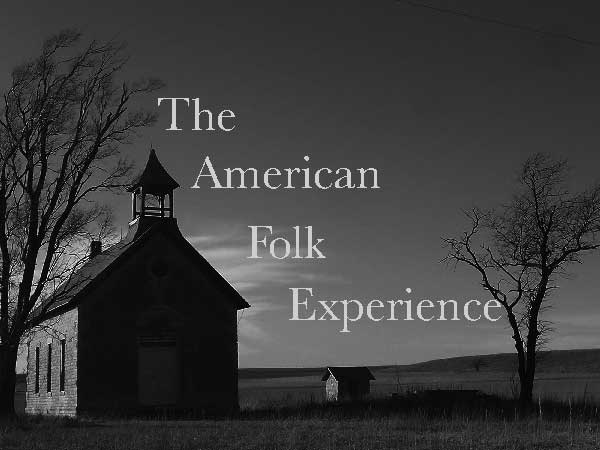
Performances, Workshops, Resources & Recordings
The American Folk Experience is dedicated to collecting and curating the most enduring songs from our musical heritage. Every performance and workshop is a celebration and exploration of the timeless songs and stories that have shaped and formed the musical history of America. John Fitzsimmons has been singing and performing these gems of the past for the past forty years, and he brings a folksy warmth, humor and massive repertoire of songs to any occasion.
Festivals & Celebrations Coffeehouses School Assemblies Library Presentations Songwriting Workshops Artist in Residence House Concerts Pub Singing Irish & Celtic Performances Poetry Readings Campfires Music Lessons Senior Centers Voiceovers & Recording
““Beneath the friendly charisma is the heart of a purist gently leading us from the songs of our lives to the timeless traditional songs he knows so well…”
Join Fitz at The Colonial Inn
“The Nobel Laureate of New England Pub Music…”
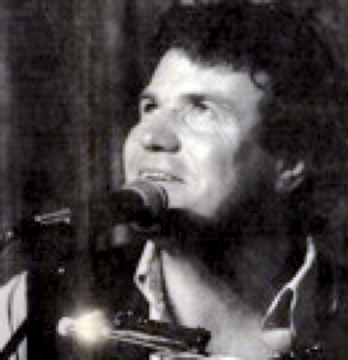
On the Green, in Concord, MA Every Thursday Night for over thirty years…
“A Song Singing, Word Slinging, Story Swapping, Ballad Mongering, Folksinger, Teacher, & Poet…”
Fitz’s Recordings
& Writings
Songs, poems, essays, reflections and ramblings of a folksinger, traveler, teacher, poet and thinker…
Download for free from the iTunes Bookstore
“A Master of Folk…”
Fitz’s now classic recording of original songs and poetry…
Download from the iTunes Music Store
“A Masterful weaver of song whose deep, resonant voice rivals the best of his genre…”
“2003: Best Children’s Music Recording of the Year…”
Fitz & The Salty Dawgs Amazing music, good times and good friends…


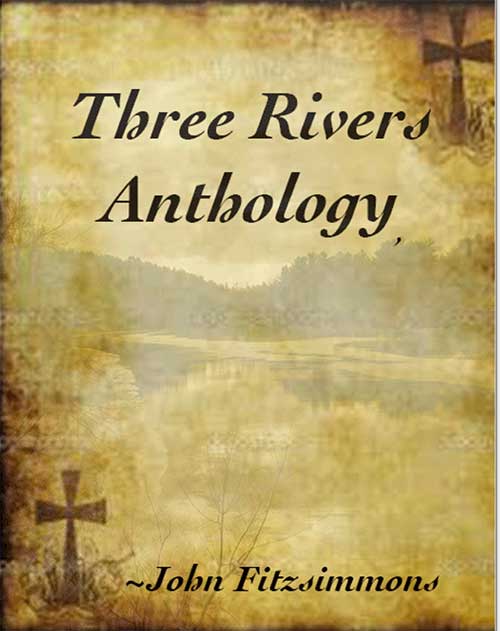
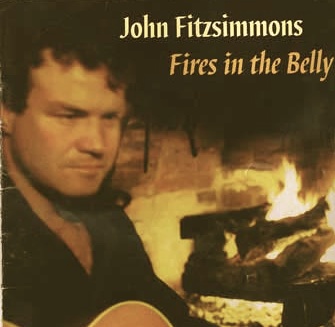
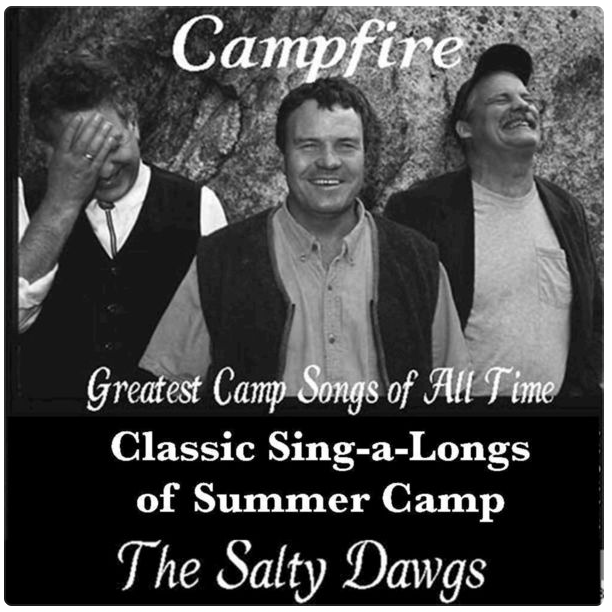
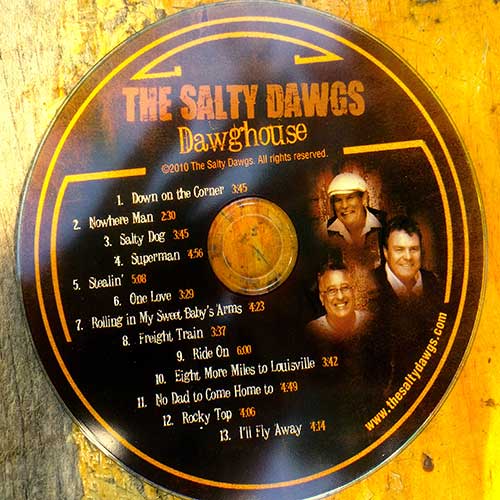
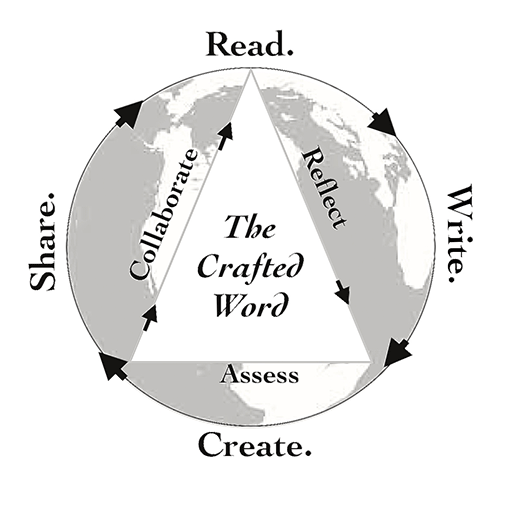


0 Comments